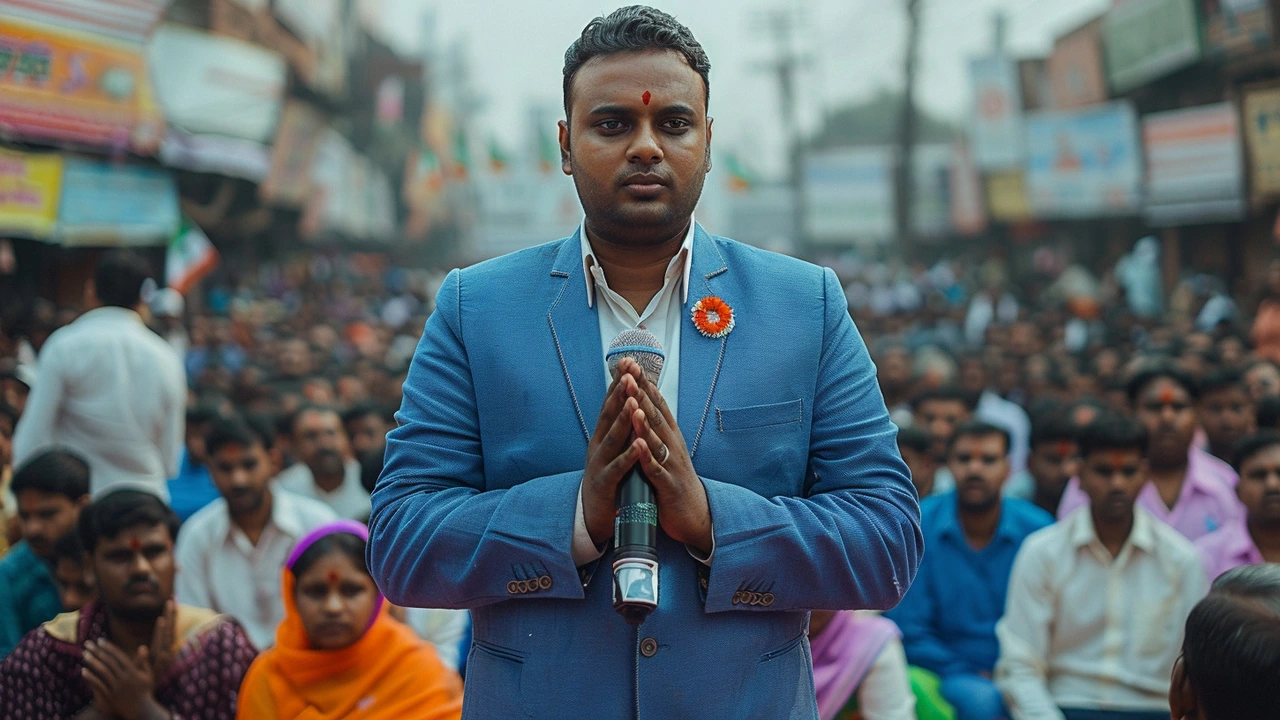
The Embroilment of Politics and Allegations in Karnataka
Recently, a wave of controversy has swept over Karnataka as Prajwal Revanna, a Member of Parliament from the Janata Dal (Secular) party, left the country amidst serious accusations of sexual assault. This development stirred reactions at the highest levels of Indian politics, with Prime Minister Narendra Modi openly criticizing the state government's handling of the situation. According to Modi, permitting Revanna to travel abroad despite the pending allegations reflects poorly on the state's commitment to law and order, hinting at potential gaps in the jurisdiction.
Modi's condemnation was not just aimed at the state apparatus but also wove into a broader critique of political rivalries and alignments in the region. According to him, the Bharatiya Janata Party (BJP) adheres to a zero-tolerance policy against individuals accused of such crimes, advocating for stringent punishment. The allegations and the subsequent handling by the state have, thus, not only legal implications but also feed into electoral narratives, especially given the timing of the unfolding events.
The controversy gains additional complexity from allegations raised by Modi regarding the role of the Congress party. As per his statement, the Congress, during its alliance with the JD(S), had access to incriminating videos but possibly withheld them until after the regional elections. This area, dominated by the Vokkaliga community — to which both the JD(S) and allegedly the incriminating videos relate — has seen its political temperature rise with these developments. Modi accused the Congress of releasing the videos strategically, only after ensuring Revanna was safely out of the country.
The PM further criticized the state's surveillance measures, mentioning that if the state had prior information about the allegations, authorities should have maintained a vigilant watch, particularly at points of exit like airports. The lack of such measures has led to a perception of negligence, or worse, complicity within certain sectors of the government, thereby eroding public trust in the state's commitment to justice and order.
Revanna, despite the controversies, remains a significant political figure in south Karnataka, particularly in Hassan, where polling was carried out recently. His absence and the circumstances surrounding it are poised to influence public opinion and political alliances. The JD(S), traditionally influential among the Vokkaliga community, finds itself at a precarious juncture, potentially impacting its political fortunes in the region.
Legal Implications and Public Reaction
The legal ramifications of allowing a political figure embroiled in such allegations to leave the country are immense. This decision raises questions about the effectiveness and impartiality of the judicial mechanisms in place. Legal experts argue that such scenarios could set worrying precedents, where political stature shields individuals from accountability. Furthermore, the public's reaction has been one of outrage and disappointment. The community expects decisive and unbiased action, and the unfolding events have only fueled skepticism towards the state's resolve in tackling high-profile cases.
Public forums and social media have become arenas for vigorous debate and demands for transparency and accountability. Citizens and activists alike are calling for a thorough investigation and urging the government to ensure that justice is not only done but seen to be done. The opposition parties are leveraging this incident to consolidate their standing among disenchanted voters, pointing to the incident as indicative of the ruling party's governance.
Political Implications and Future Projections
The implications of this incident extend far beyond the immediate legal consequences. Politically, the BJP is using this situation to underscore its stance on crime and punishment, especially in contrast to its opponents. As elections approach, such issues become fodder for electoral strategies, with parties keen to showcase their commitment to ethical governance. Modi's outright criticism of the Karnataka government and the Congress sets the stage for a heated political environment, where every action and reaction will be scrutinized through the lens of electoral gains and losses.
As the saga unfolds, the crucial question remains how this will affect the political landscape in Karnataka. Will the electorate respond by swaying towards the BJP's call for stringent law enforcement, or will the JD(S)'s regional loyalty hold strong amidst the turbulence? The answers to these will not only decide electoral outcomes but also set precedents for how allegations of this nature are handled politically and legally in the future.
